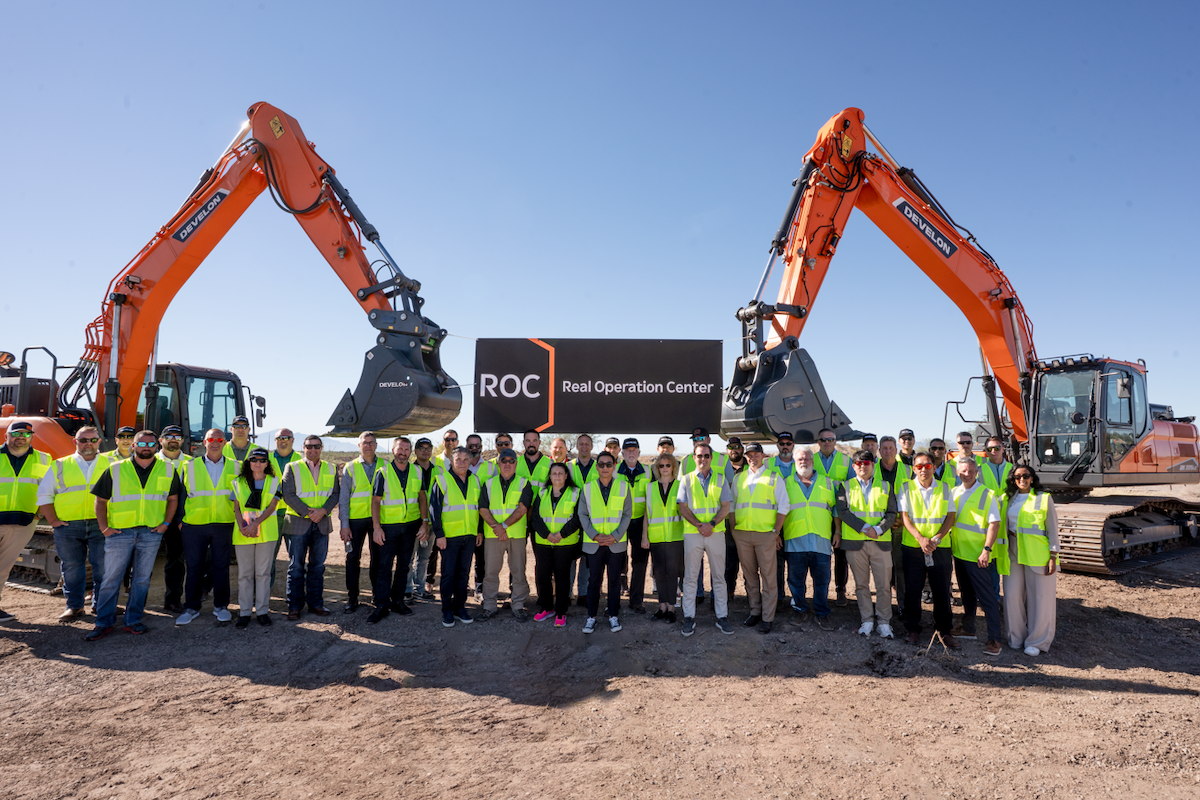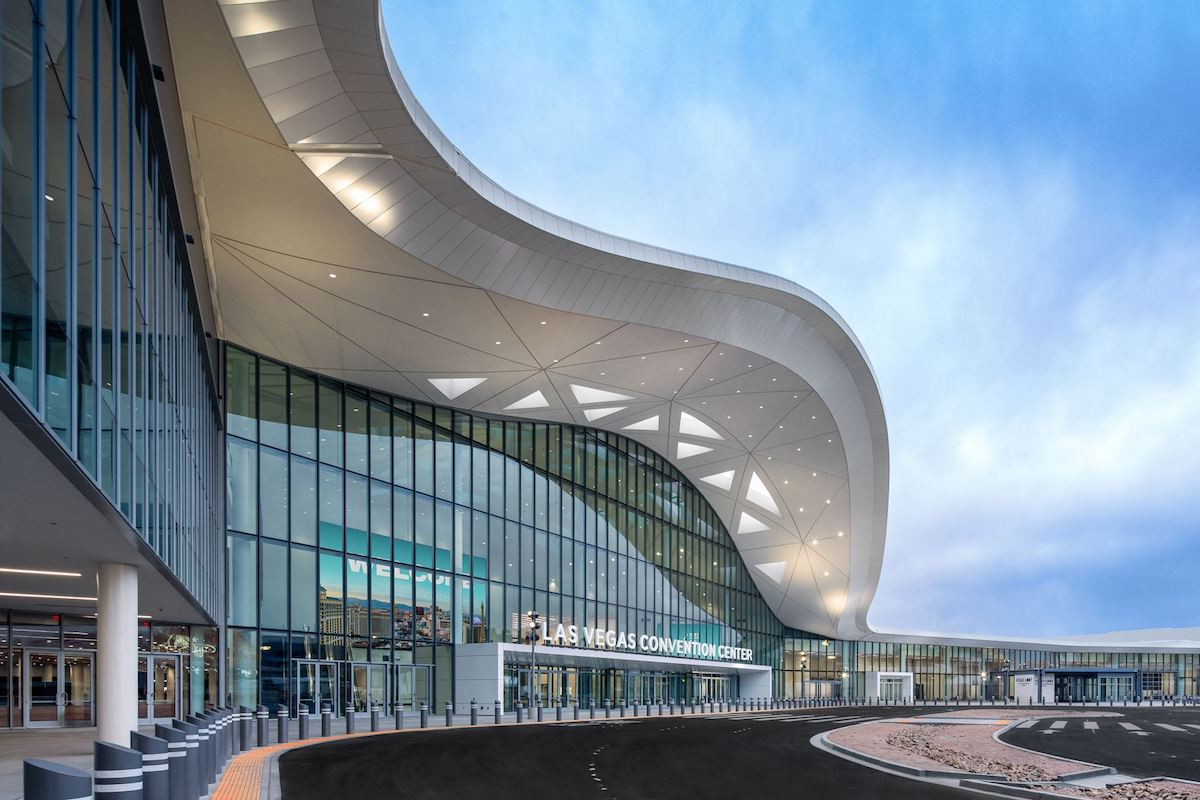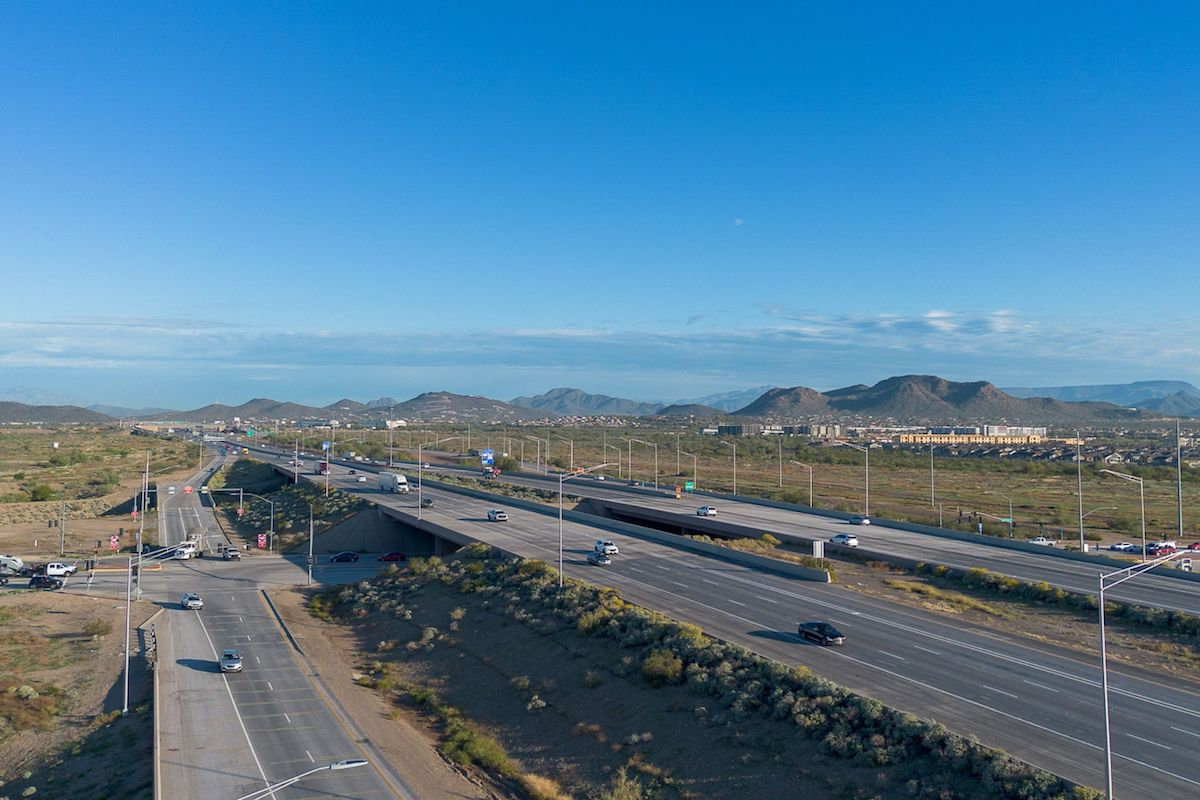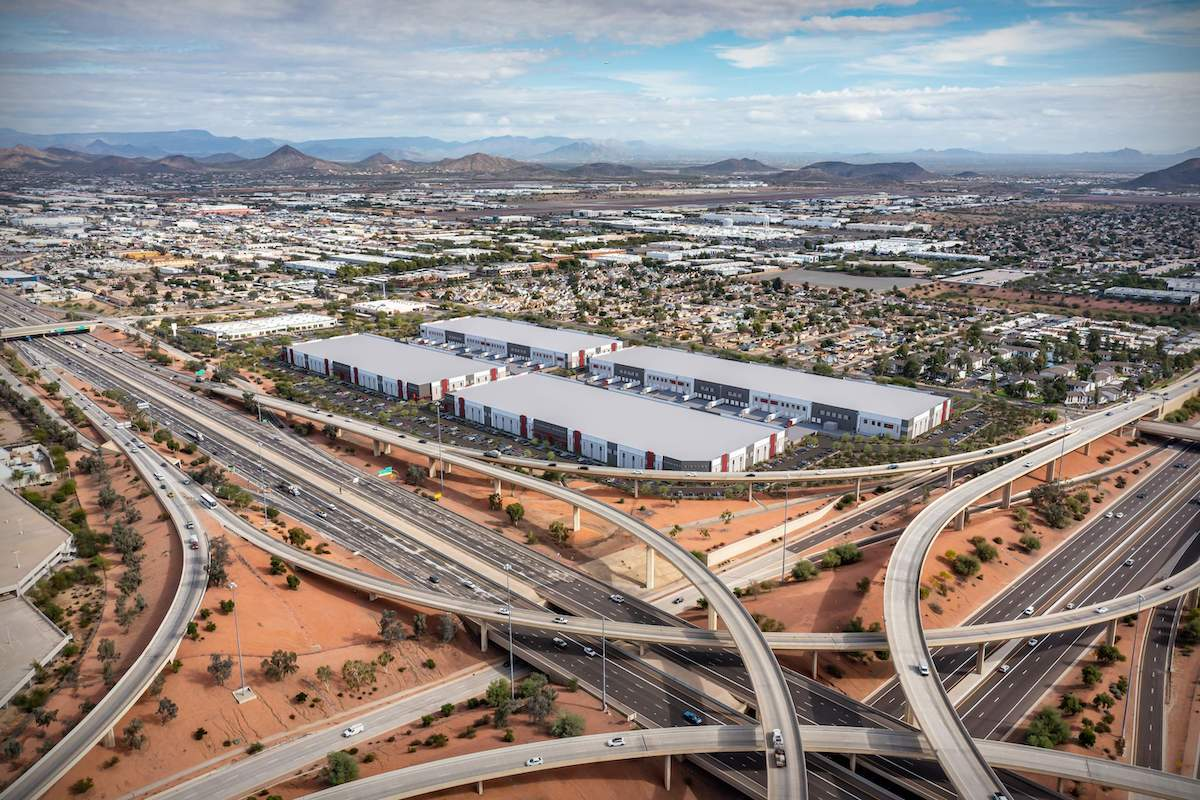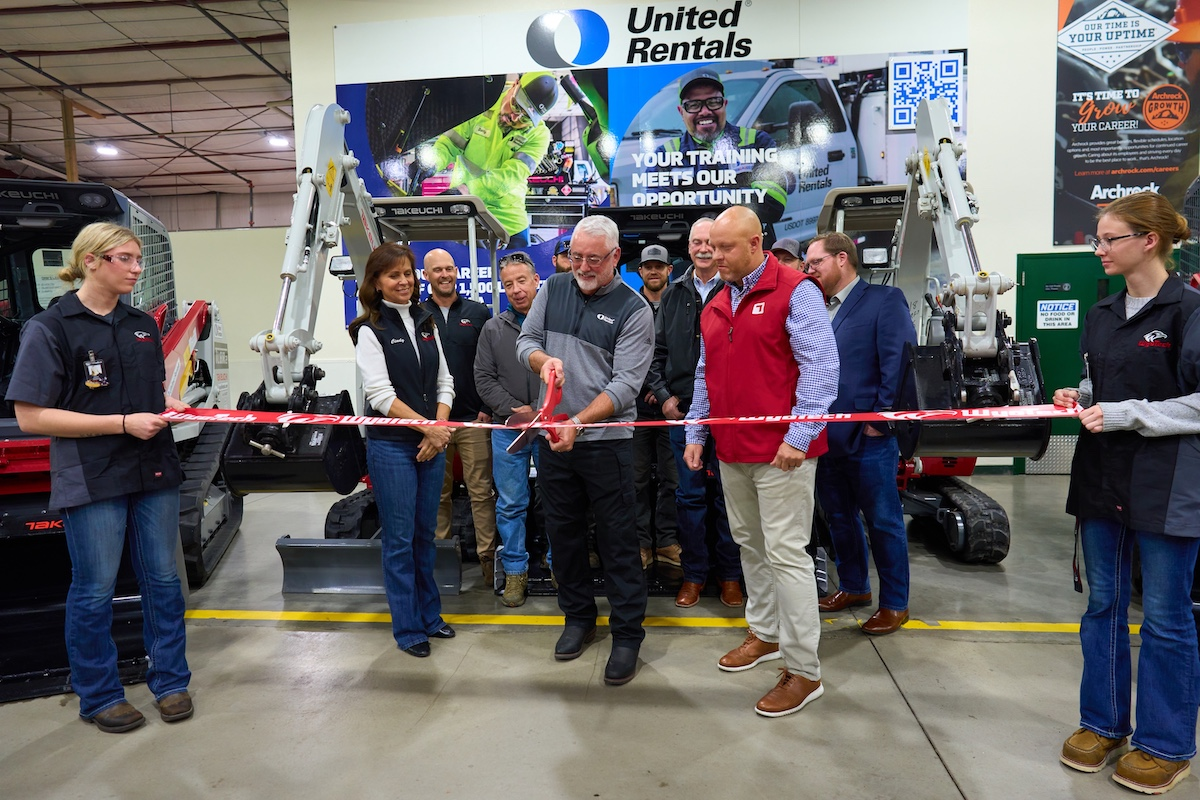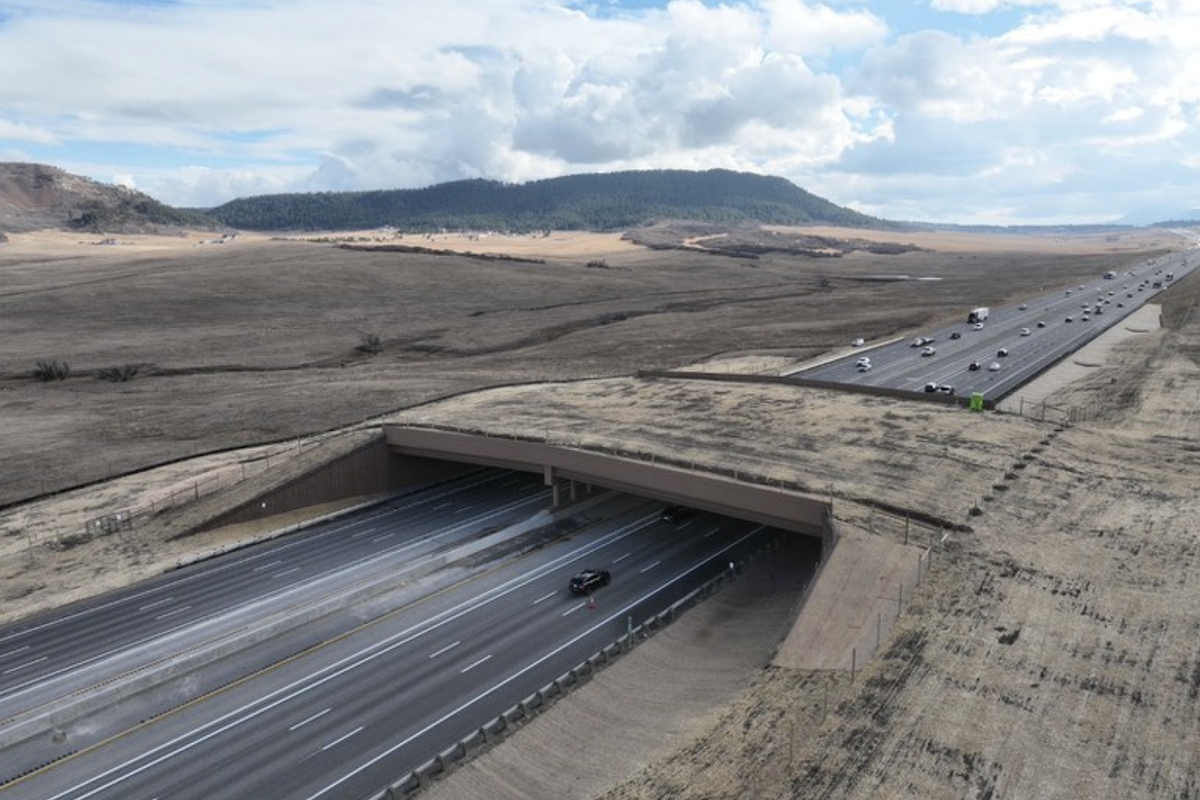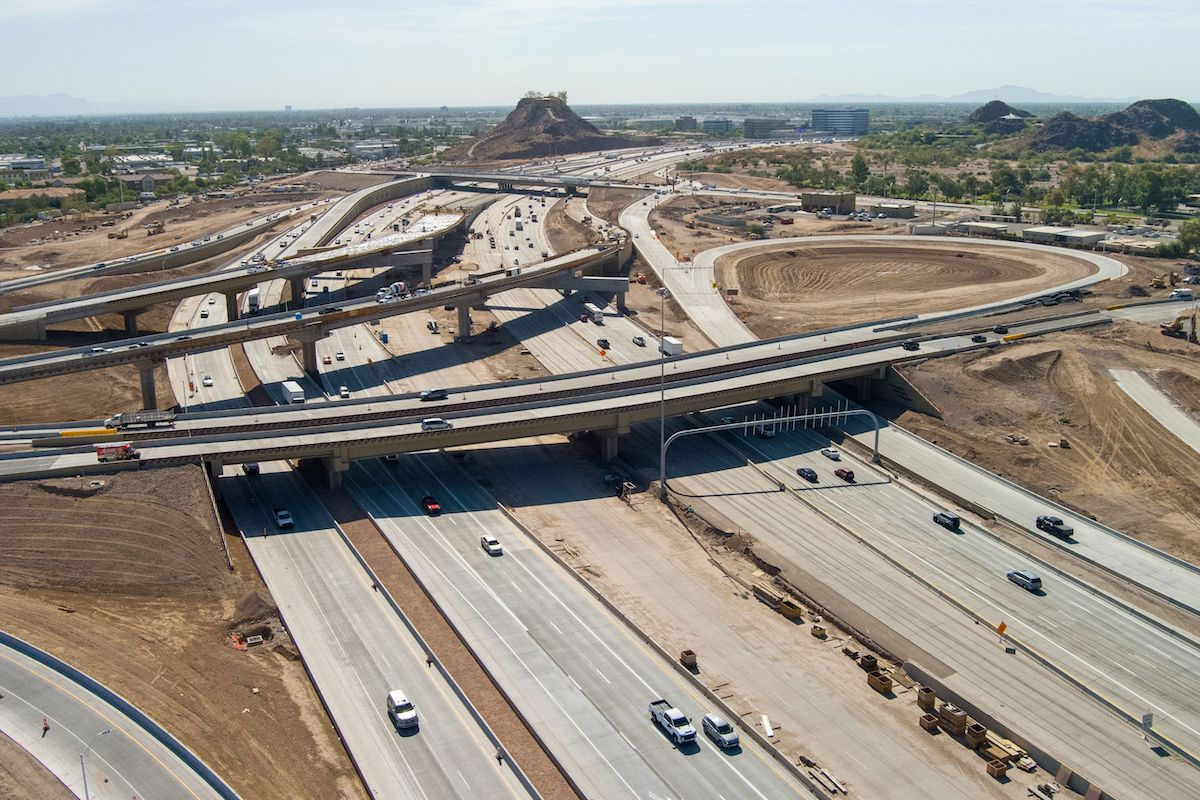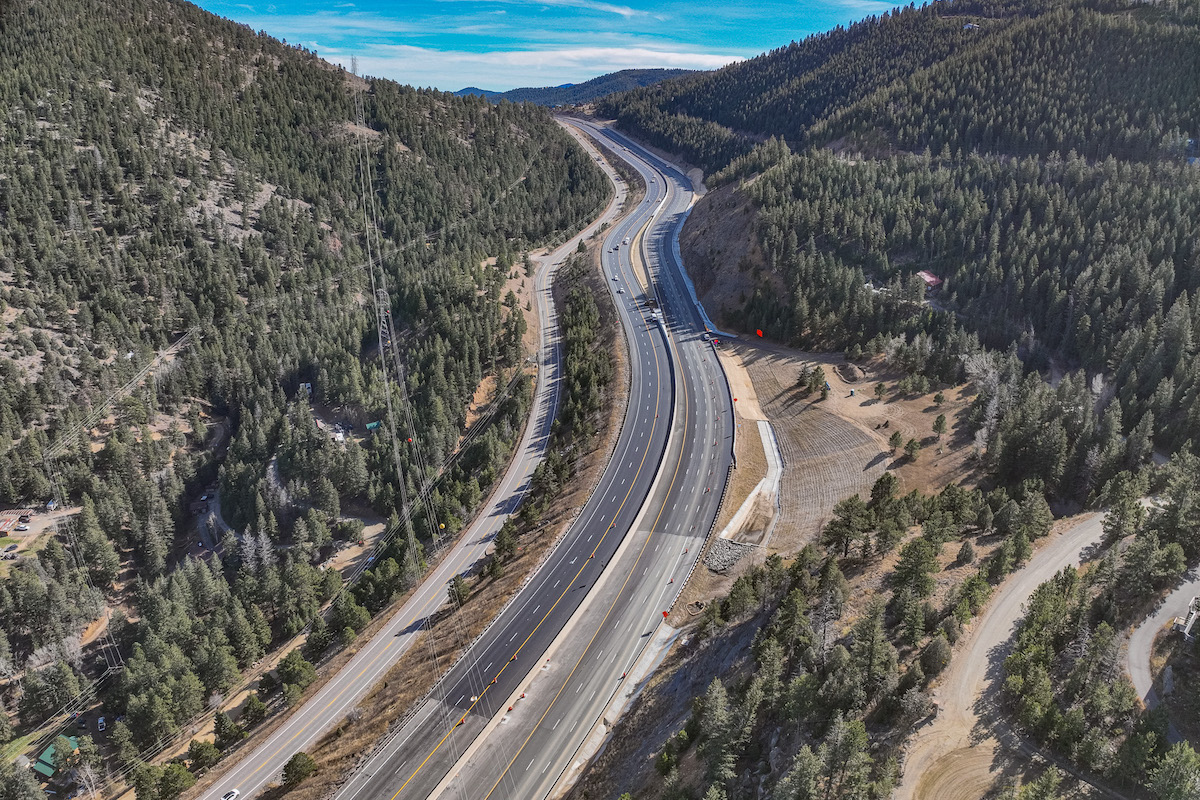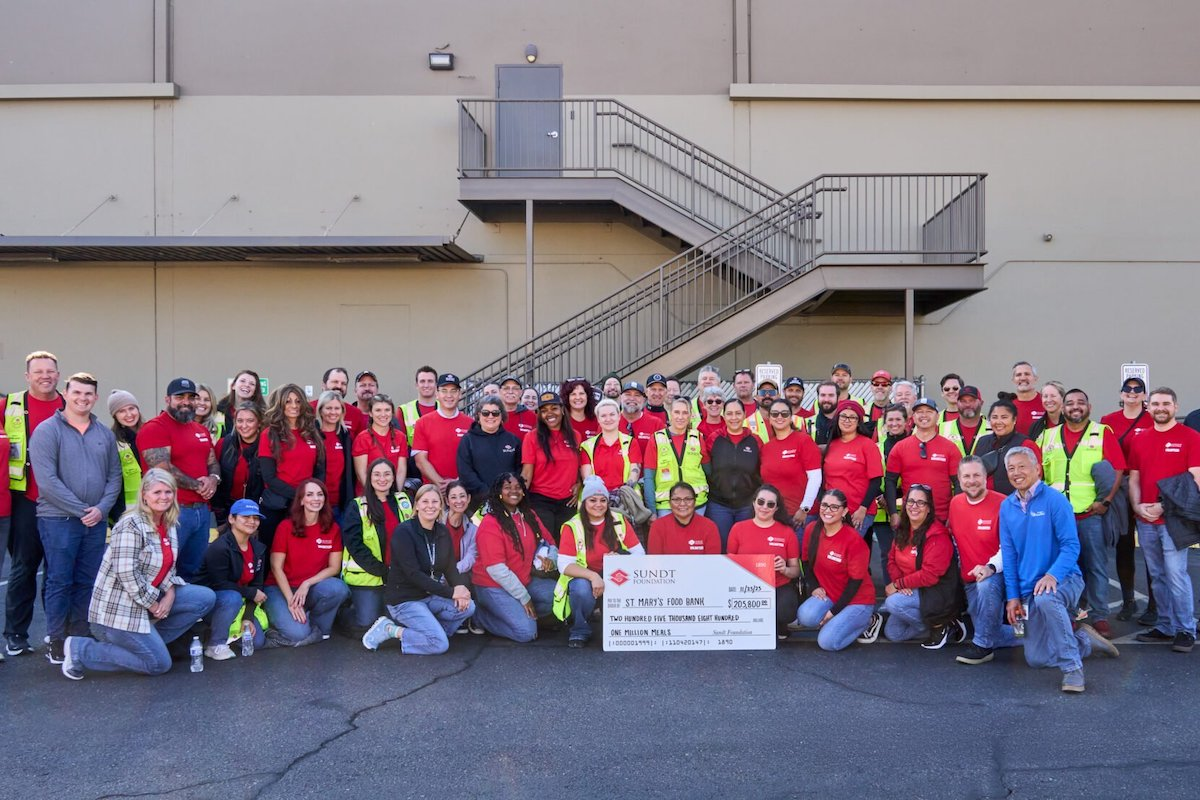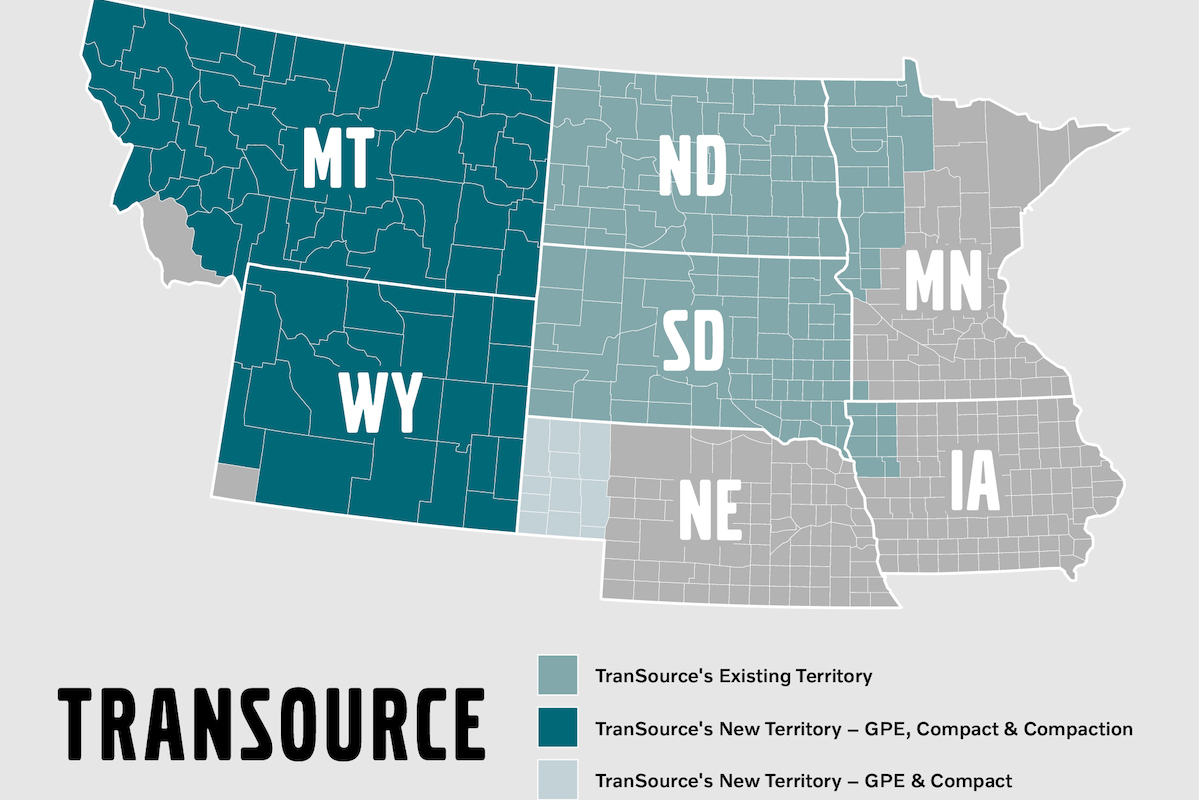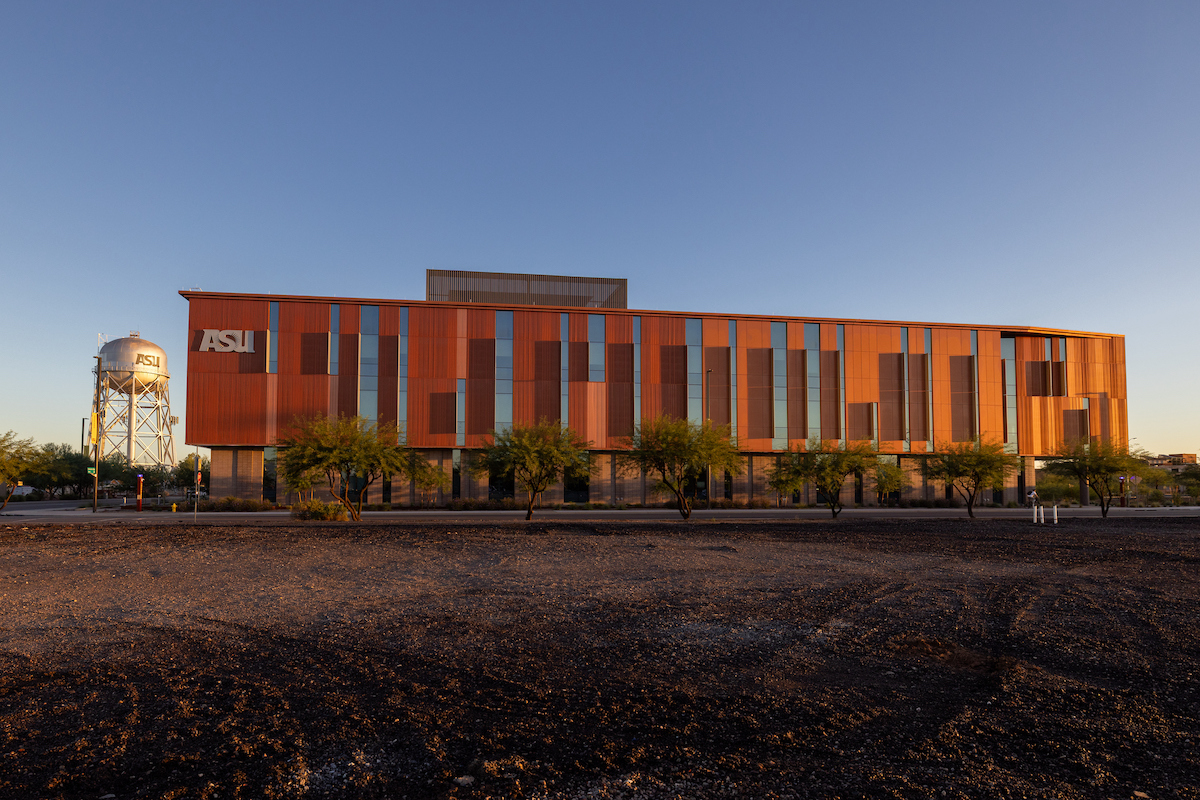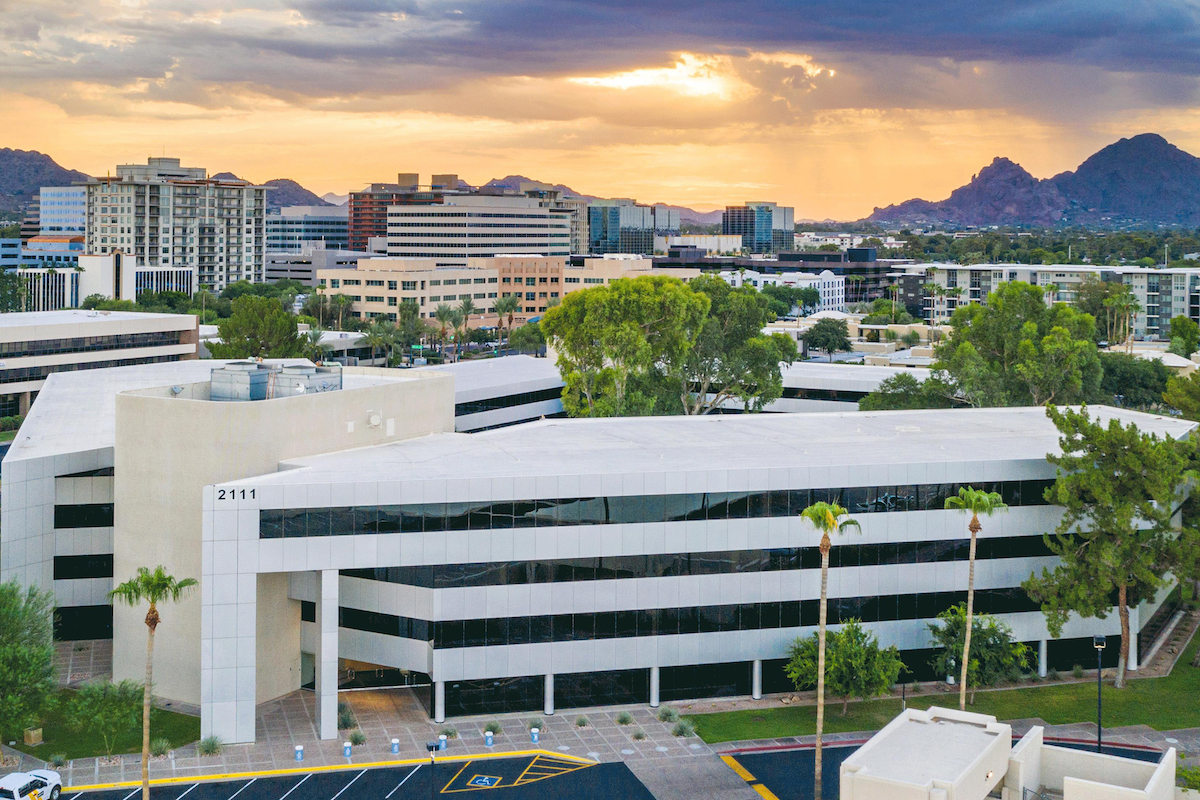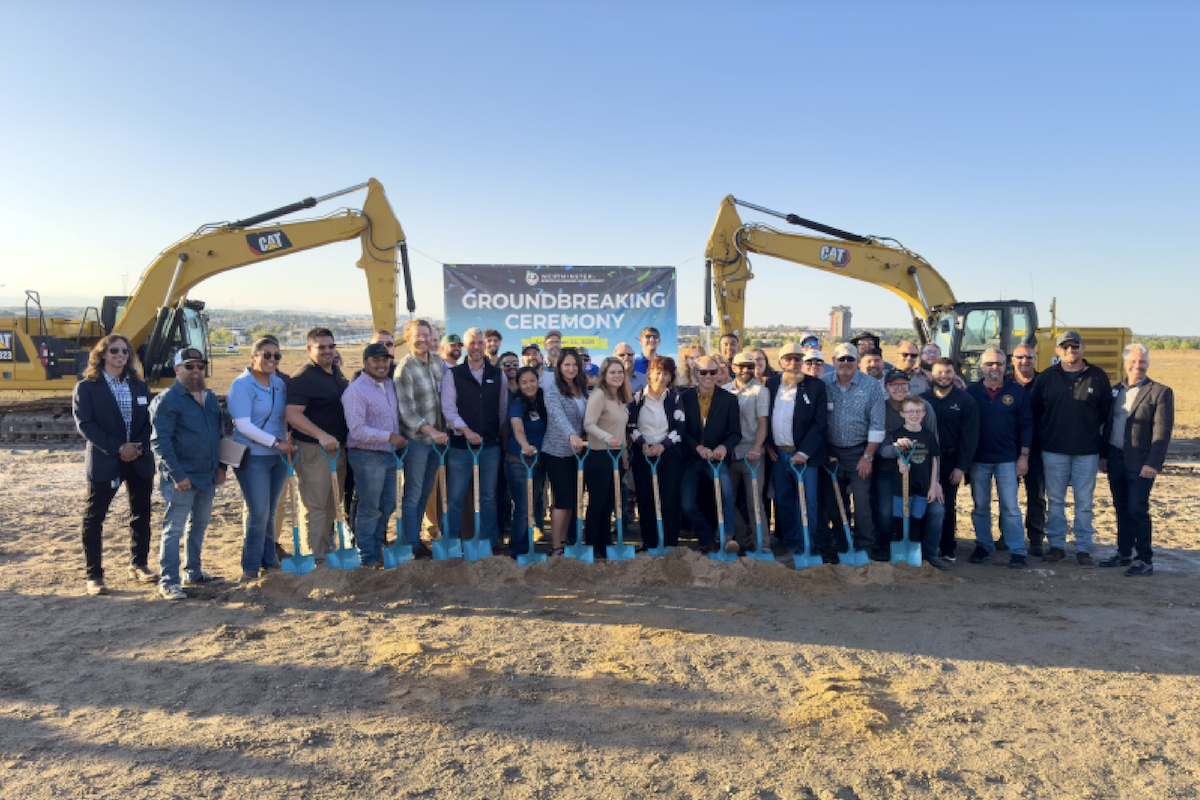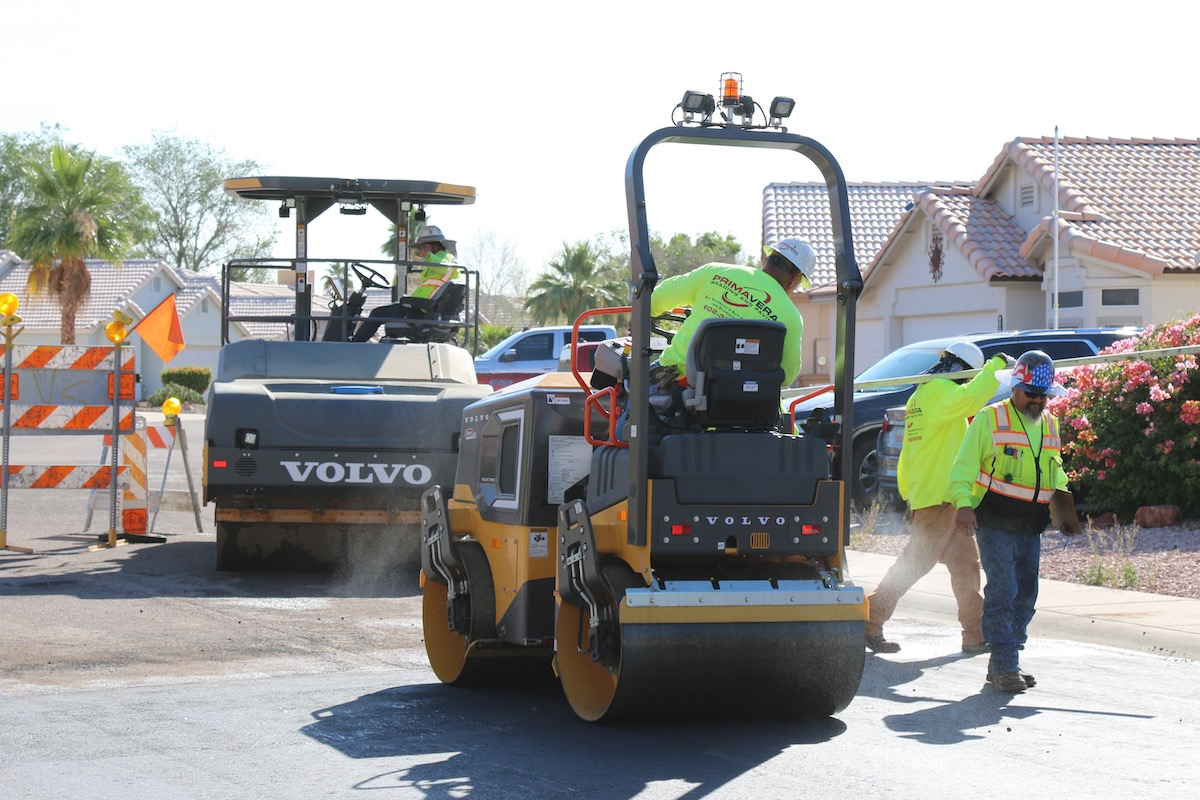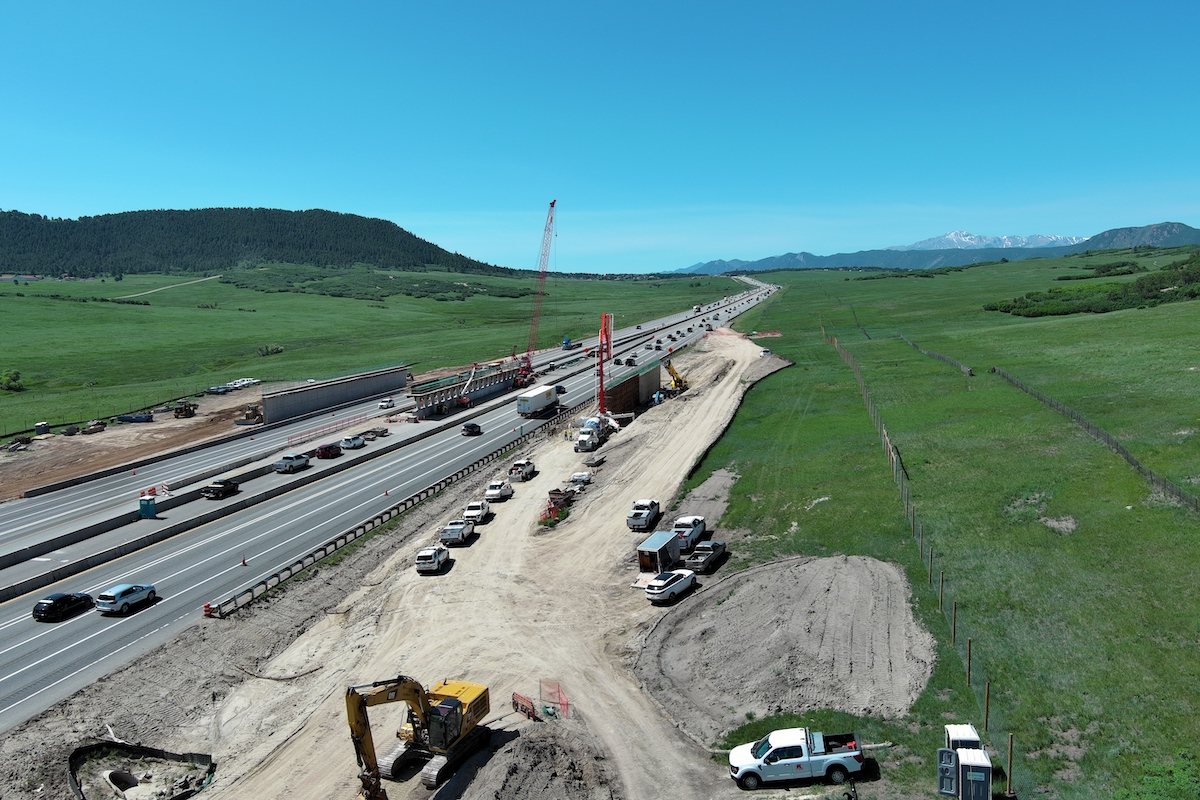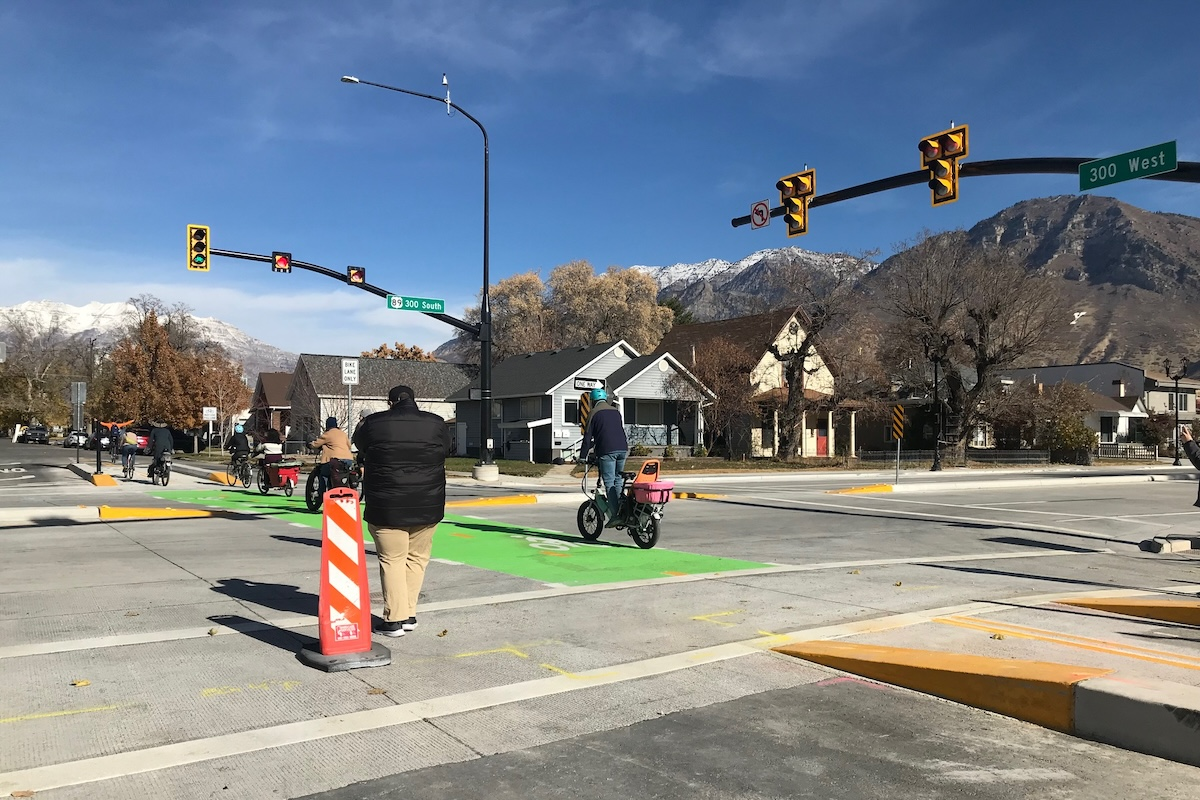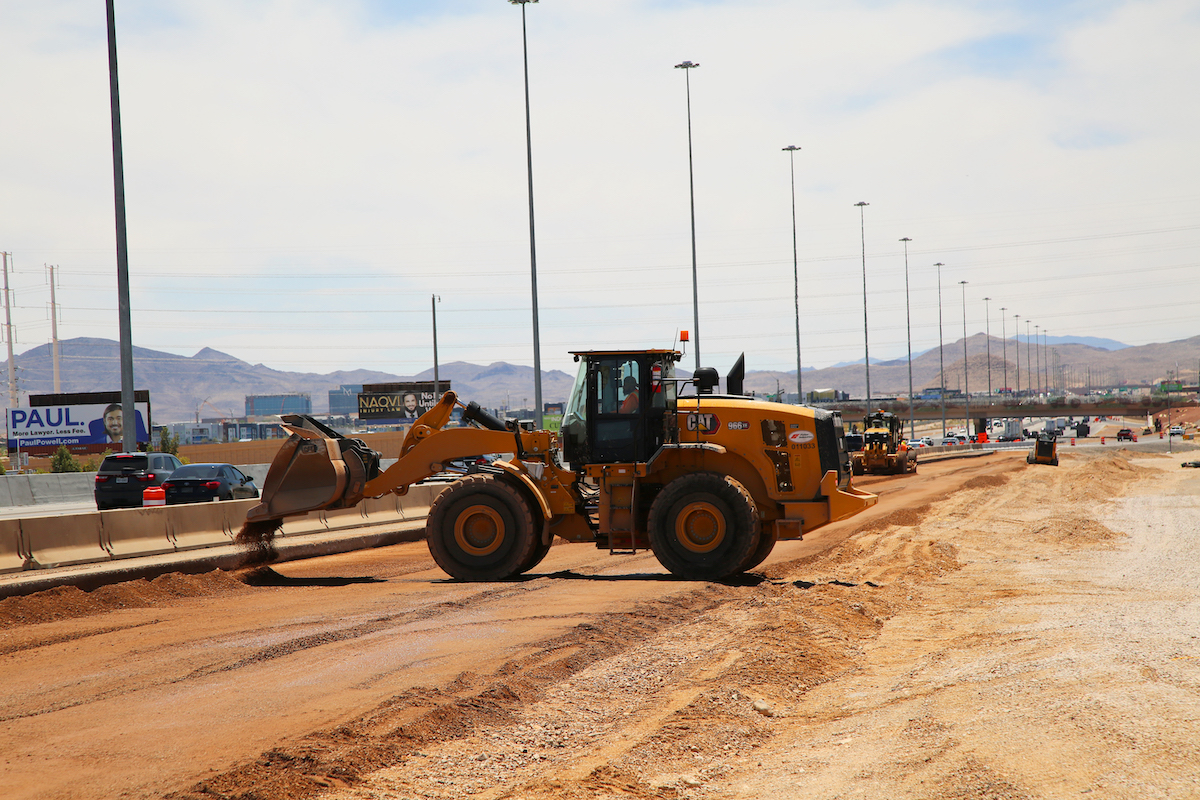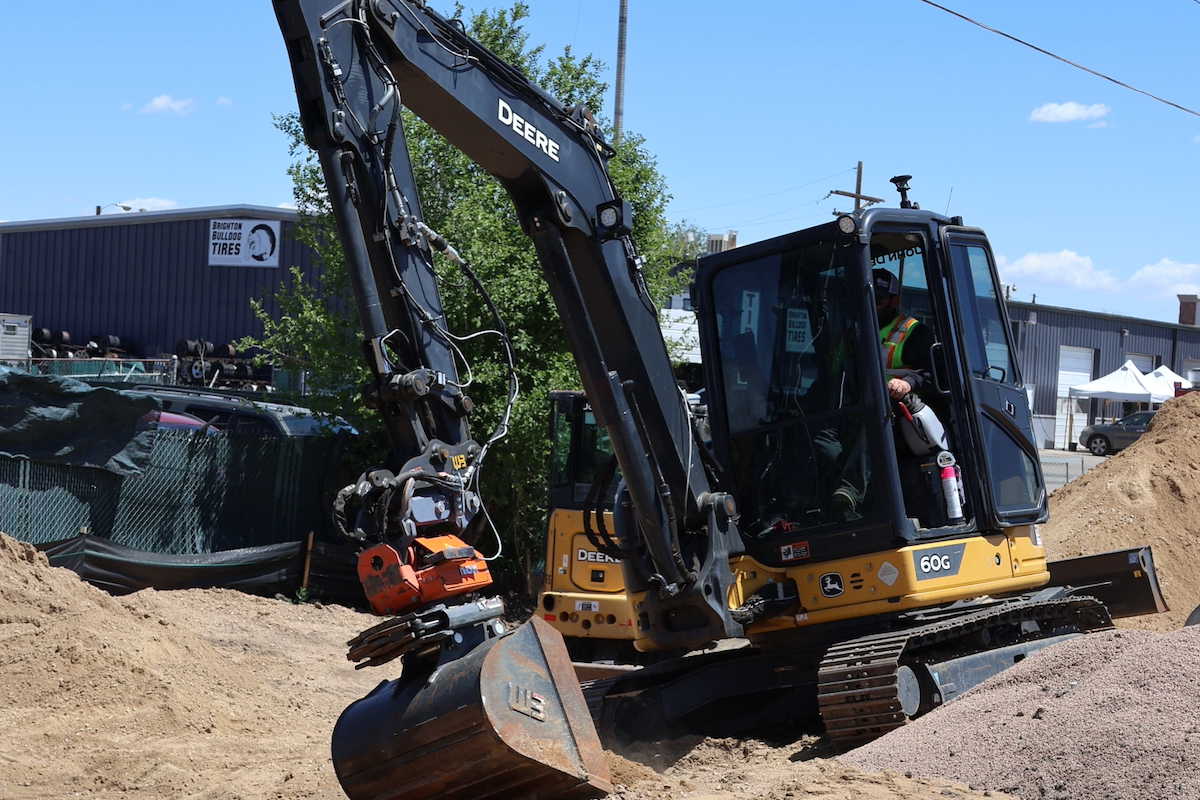“The bridge will ensure decades of reliable transportation for the general public as well as commercial traffic from nearby mines,” says Garin Groff, Public Information Officer for the Arizona Department of Transportation (ADOT). The new bridge has a 50-year design life.
The original 637-foot-long Pinto Creek Bridge was built in 1949 and no longer meets minimum Federal Highway Administration or state standards. In recent years, ADOT has completed several maintenance projects to extend the bridge’s life, but now with continued exposure to weather and traffic vibration, it needed replacing.
“The existing bridge is a beautiful arched structure, but it has lived its life,” says Dan Keller, Project Manager with Ames Construction of Scottsdale, Arizona, the contractor on the project.
The location, going through the Pinto Creek canyon and the height of the bridge presented challenges, Keller says.

| Your local Bobcat dealer |
|---|
| Ditch Witch West |
| Faris Machinery |
“It’s a very unique project for Arizona,” Keller says. “We do not usually do this kind of bridge.”
More than 9,100 vehicles travel on the road daily. Detours on State Route 77 and State Route 177 will add about 60 miles and 60 minutes or longer for drivers. Some daytime full-road closures occurred when crews blasted to clear rock so the highway could move 30 feet to the north to align with the new bridge.
“ADOT worked to minimize traffic impacts by having initial restrictions and closures on a predictable schedule, so drivers could plan their travels without surprises,” Groff reports. “The remainder of the project is continuing without restrictions or closures, aside from upcoming bridge deck pours and a full closure of up to five days at the end of the project.”
Several environmental concerns were associated with the project, including protecting the hedgehog cactus and the Pinto Creek, which only has water about 70 percent of the year, and avoiding archaeological areas in the vicinity.
Biologists from the Arizona Department of Transportation, the Tonto National Forest, and partner organizations spent several days removing and protecting the endangered cactus, which only lives in Gila and Pinal counties in Arizona. The cactus is covered with spines and looks like a hedgehog. Some of the biologists rappelled down into the canyon collecting samples and stem cuttings and roping off areas where construction crews and their equipment could not go.

| Your local Volvo Construction Equipment dealer |
|---|
| Faris Machinery |
Pinto Creek is a Water of the U.S. protected by federal regulations. Construction crews had to stay out of the water and away from wildlife.
Building the access road “required some blasting and pioneering the road down there in the Tonto National Forest,” Keller says. “It was a major challenge getting down there and getting a working area. We had to get large cranes, 300 ton, down in a limited area. The logistics are getting the work done and staying out of each other’s way.”
Ames Construction placed its most expert dozer operators on the access road aspect of the project. “We had the right guys doing it, and it turned out well,” Keller reports.
Ames Construction modeled the road and used GPS on the dozers and blades to construct it according to plan. The company is using total stations for layouts and critical surveying.
All of the crew members and materials needed to construct the bridge came down the access road, which was designed to accommodate 140-foot-long trucks needed to bring in the steel girders. The road has a switchback design and a 20-degree grade for the trucks. It has berms to protect vehicles from falling off the edge.

| Your local Gomaco dealer |
|---|
| Faris Machinery |
Ames Construction worked one pier at a time. It brought in a specialty subcontractor for drilling the 10-foot diameter shafts, which reach to solid rock with a depth of 45 feet to 50 feet. It took about 20 days to drill each shaft.
“It takes coordinating and making sure things happen when they should,” Keller says.
It took three cranes to lift the 180-foot-tall rebar cages, which remained suspended while crews built columns around them. Pumping concrete to the top of the piers presented additional challenges. In some cases, one concrete pump truck pumped concrete to another concrete pump truck and that one pumped concrete for the abutment. Ames Construction will pave the new bridge deck with concrete.
“The concrete deck will be removed, center arch span will be imploded and the remaining spans and substructure will be mechanically removed with hydraulic hammers, shears, etc.,” Groff says.
Groff praised the teamwork the department has experienced between the construction and development teams. Keller agrees and also thanked the environmental regulators.

| Your local Trimble Construction Division dealer |
|---|
| SITECH Southwest |
| SITECH Northwest |
| SITECH Rocky Mountain |
“We’ve faced so many challenges, and ADOT has been fantastic finding a solution,” Keller says. “It’s not our problem or their problem. We are a team. We go about it that way.”
The project is scheduled for completion in September 2021. Keller said it will be the second tallest bridge in Arizona.
“This is the coolest project I have ever worked on,” Keller says. It also will be his last due to his upcoming retirement. “That makes it more special for me.”












